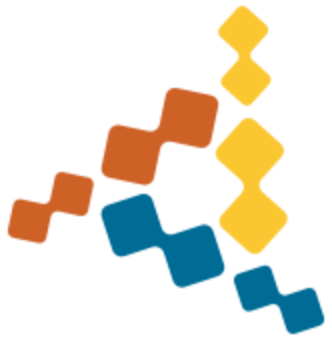Standard library imports¶
future supports the standard library reorganization (PEP 3108) through
several mechanisms.
Direct imports¶
As of version 0.14, the future package comes with top-level packages for
Python 2.x that provide access to the reorganized standard library modules
under their Python 3.x names.
Direct imports are the preferred mechanism for accessing the renamed standard
library modules in Python 2/3 compatible code. For example, the following clean
Python 3 code runs unchanged on Python 2 after installing future:
>>> # Alias for future.builtins on Py2:
>>> from builtins import str, open, range, dict
>>> # Top-level packages with Py3 names provided on Py2:
>>> import queue
>>> import tkinter.dialog
>>> etc.
Notice that this code actually runs on Python 3 without the presence of the
future package.
Of the 44 modules that were refactored with PEP 3108 (standard library reorganization), 29 are supported with direct imports in the above manner. The complete list is here:
### Renamed modules:
import builtins
import copyreg
import html
import html.entities
import html.parser
import http.client
import http.cookies
import http.cookiejar
import http.server
import queue
import reprlib
import socketserver
from tkinter import colorchooser
from tkinter import commondialog
from tkinter import constants
from tkinter import dialog
from tkinter import dnd
from tkinter import filedialog
from tkinter import font
from tkinter import messagebox
from tkinter import scrolledtext
from tkinter import simpledialog
from tkinter import tix
from tkinter import ttk
import winreg # Windows only
import xmlrpc.client
import xmlrpc.server
import _dummy_thread
import _markupbase
import _thread
Note that, as of v0.16.0, python-future no longer includes an alias for the
configparser module because a full backport exists (see https://pypi.org/project/configparser/).
Aliased imports¶
The following 14 modules were refactored or extended from Python 2.7 to 3.x
but were neither renamed in Py3.x nor were the new APIs backported to Py2.x.
This precludes compatibility interfaces that work out-of-the-box. Instead, the
future package makes the Python 3.x APIs available on Python 2.x as
follows:
from future.standard_library import install_aliases
install_aliases()
from collections import UserDict, UserList, UserString
import urllib.parse
import urllib.request
import urllib.response
import urllib.robotparser
import urllib.error
import dbm
import dbm.dumb
import dbm.gnu # requires Python dbm support
import dbm.ndbm # requires Python dbm support
from itertools import filterfalse, zip_longest
from subprocess import getoutput, getstatusoutput
from sys import intern
import test.support
The newly exposed urllib submodules are backports of those from Py3.x.
This means, for example, that urllib.parse.unquote() now exists and takes
an optional encoding argument on Py2.x as it does on Py3.x.
Limitation: Note that the http-based backports do not currently support
HTTPS (as of 2015-09-11) because the SSL support changed considerably in Python
3.x. If you need HTTPS support, please use this idiom for now:
from future.moves.urllib.request import urlopen
Backports also exist of the following features from Python 3.4:
math.ceilreturns an int on Py3collections.ChainMap(for 2.7)reprlib.recursive_repr(for 2.7)
These can then be imported on Python 2.7+ as follows:
from future.standard_library import install_aliases
install_aliases()
from math import ceil # now returns an int
from collections import ChainMap
from reprlib import recursive_repr
External standard-library backports¶
Backports of the following modules from the Python 3.x standard library are available independently of the python-future project:
import enum # pip install enum34
import singledispatch # pip install singledispatch
import pathlib # pip install pathlib
A few modules from Python 3.4 are also available in the backports
package namespace after pip install backports.lzma etc.:
from backports import lzma
from backports import functools_lru_cache as lru_cache
Included full backports¶
Alpha-quality full backports of the following modules from Python 3.3’s
standard library to Python 2.x are also available in future.backports:
http.client
http.server
html.entities
html.parser
urllib
xmlrpc.client
xmlrpc.server
The goal for these modules, unlike the modules in the future.moves package
or top-level namespace, is to backport new functionality introduced in Python
3.3.
If you need the full backport of one of these packages, please open an issue here.
